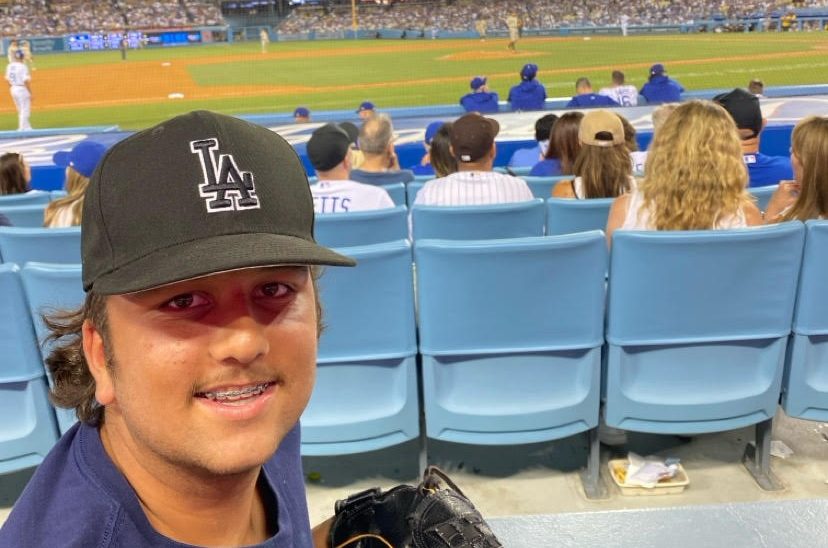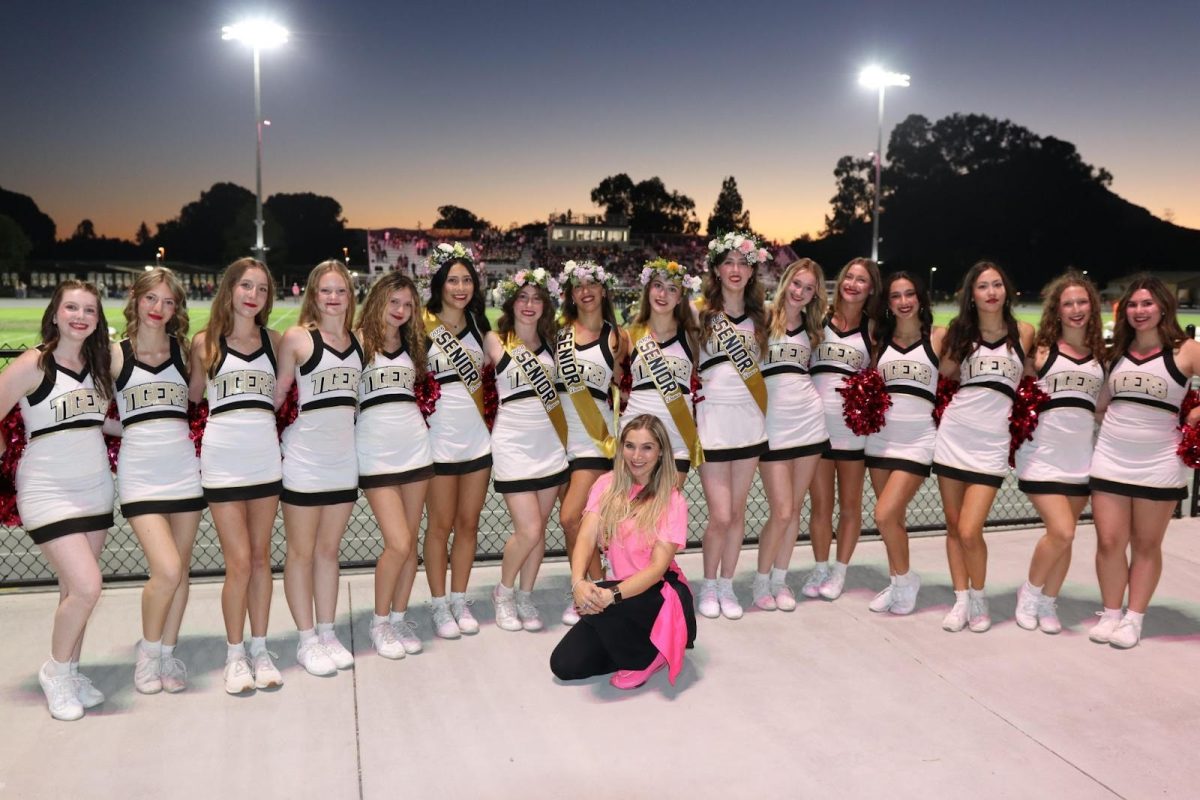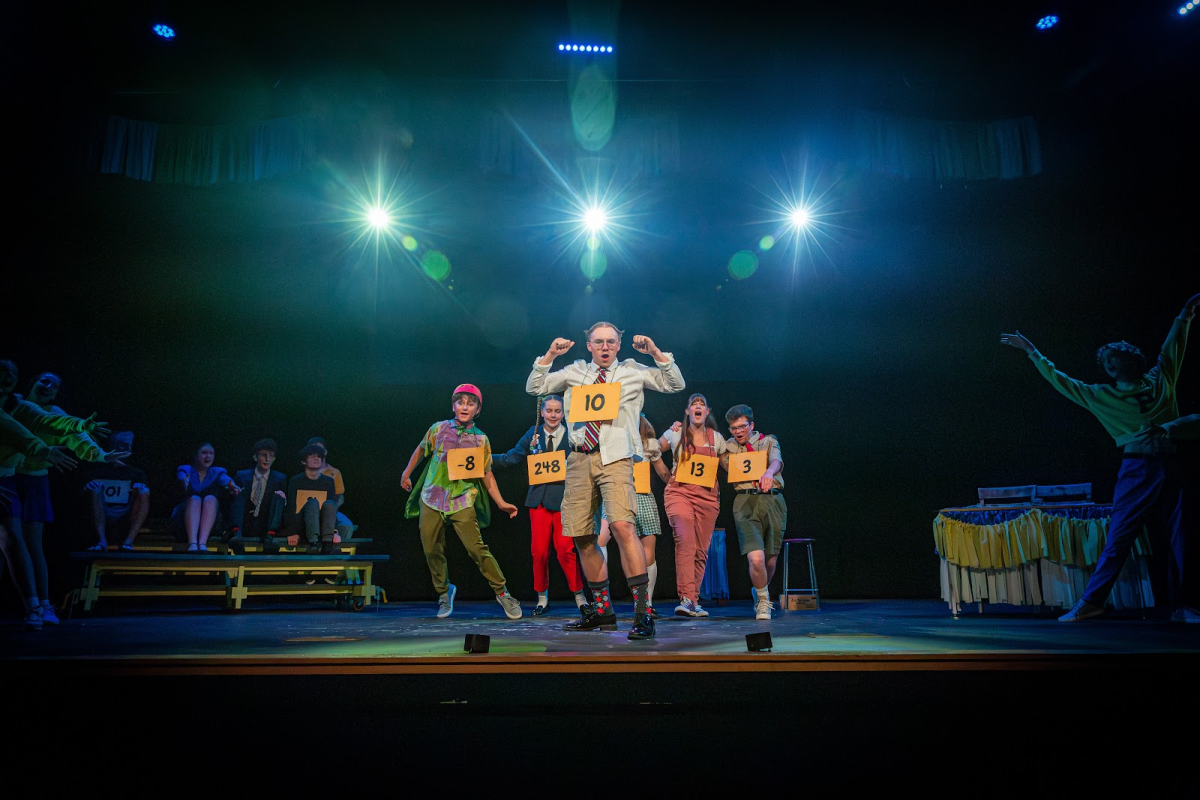At San Luis Obispo High School, over 100 people are enrolled in marching band for the 2019-2020 school year. Students who are not in marching band often consider this class to not be a sport. Expressions interviewed musicians who currently play in our SLOHS band.
Expressions: How long have you been in marching band?
SLOHS Graduate Jordan Johl: Four years.
Senior Simone Gabriel: Two years.
Junior Natalie Stevens: Two years.
Junior Dana Carlson: Two years, I was in marching band in 6th grade too.
Sophomore Michael Lanier: One year.
Expressions: What instrument(s) do you play?
Johl: I’ve been playing bass clarinet for four years, and clarinet for eight. I played bass clarinet in marching band for two years, and clarinet for the other two years.
Gabriel: I play piano in jazz band, percussion in concert band, and snare drum in drumline.
Stevens: I play the trumpet and violin.
Carlson: I play flute in marching band and trumpet in jazz band.
Lanier: I play tenor saxophone in marching band and bass in jazz band.
Expressions: Do you consider yourself an athlete because you’re in marching band?
Johl: Marching band does require athletic strength, but I wouldn’t consider myself an athlete because I don’t practice rigorously for marching band. SLOHS band is still a fairly intermediate marching band.
Gabriel: Not necessarily. If you practice in a marching band that is of a high level, such as a Drum Corps International or a professional group, then yes. Those groups are doing more physical training. It’s more of a physical activity more than a high school marching band, which usually doesn’t tend to put in as much effort as the professionals. I think that our marching band does put quite a bit of effort into the physical and musical aspects of marching band.
Stevens: Yes I would say so. It’s hard, you have to hold up an instrument for prolonged amounts of time, you have to have some kind of upper body strength to do that. I consider a sport as something that is physically and mentally draining and marching band definitely counts.
Carlson: I do. I definitely get in shape during first trimester, it’s not as much as I would be during other sports, like track, but I would still consider myself an athlete.
Lanier: Yes, sort of. When you’re wearing your marching uniform it gets very hot, in that way it’s athletic, but I don’t think it’s as athletic as track. But, it could be considered a sport because some people take it very seriously or very lightly. It’s way harder than you think, there’s so many steps that are suppose to be in your head in order to perform, and the muscle memory aspect too.
Expressions: If you have played a sport, do you believe that sport is more difficult than marching band?
Johl: I did track and field in the past, and I would say that it is more difficult. It’s much more physically strenuous, while marching band mixes physical aspects with more mental challenges when it comes to playing your instrument. Both are difficult, but in different ways.
Gabriel: I did swim and played club volleyball for a few years. I’m not sure about the other sections in our band, but in drumline we did physical training and workouts to help us carry our drums. Those workouts were at the same level of intensity as the workouts I was doing in my other sports.
Stevens: I play basketball and track and field. In some instances, marching band can be more difficult. It depends on how much time you’re willing to put in. For some musicians, they are willing to put more time to spend hours practicing marching, which could be equal to a different sport. But some people just don’t care that much.
Carlson: I did track and field, and I believe that you can’t really compare them because they are very different. Track is harder physically, but mentally marching band is a lot tougher.
Lanier: I did track this year. With marching band, you have the factor of music that you have to be playing, while marching at the same time. With track, I’m a distance runner. With that, it’s about having a good start and maintaining that same pace throughout the entire event you’re running. They are both difficult in their own senses.
Expressions: What would you tell students that believe marching band isn’t a sport?
Johl: Try it out. Obviously, they probably aren’t going to. But, I would recommend watching a DCI show. Then you will understand how hard upper level musical groups work.
Gabriel: It doesn’t really matter what other people think.
Stevens: It just takes a lot of work. Don’t hate on it unless you try it! Because it’s a lot harder than other people may think it is.
Carlson: I think people are allowed to have their own opinions. A lot of people don’t understand the kind of stuff we do. Maybe by explaining to them what we do, like memorizing music, and how much we work for performances would help.
Lanier: They should try it for themselves, and then see if they think it’s a sport or not.
For me, I’m in drumline and I believe that marching band is a sport, especially for us drummers. During our sectionals, which is just rehearsal for a certain section by themselves, we do a lot of physical training. PT gives us certain muscle strength for us to carry our drums while we’re marching. Our Tama drums range in weight from 13 pounds to 21 pounds. This weight transfers to our lower back and our shoulders while we’re marching. Keep in mind, we must carry these drums while we are playing. Aside from the drum major, who is the conductor in front of the field giving us the tempo, the drumline is critical to keeping the correct tempo.
For our competitions, the whole band is judged along with the drumline. The drumline also participates in separate competitions minus the rest of the band. Our drum captain, Joel Surfleet, holds our drumline to a very high level. He definitely pushes us to be the best drumline that we can achieve. I believe that our section is one that works one of the hardest, but we always have fun, even if we’re working hard.
































